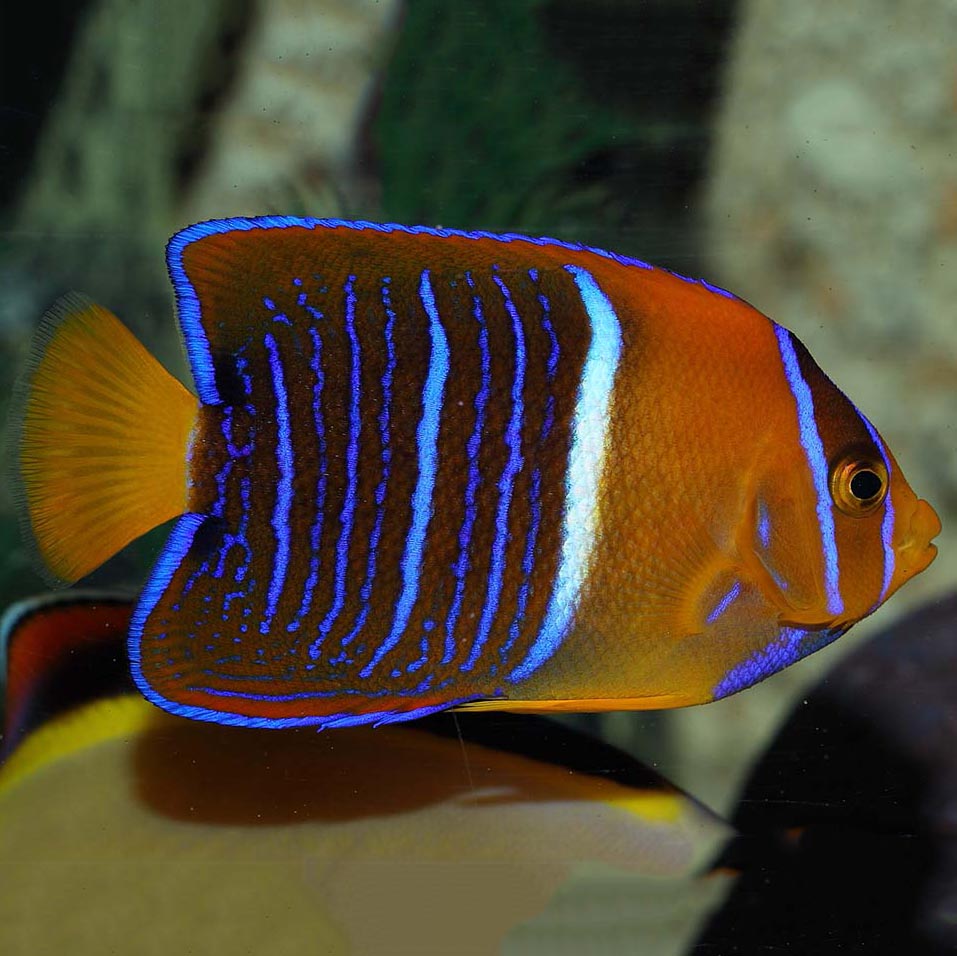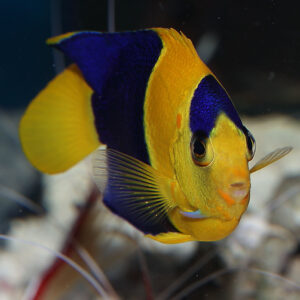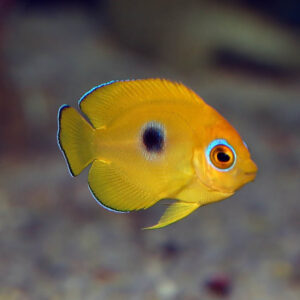Juvenile Passer Angelfish, Holacanthus passer, also go by the name King Angelfish. Like several members of this genus, adults and juveniles do resemble each other. These angels have laterally compressed, oval bodies with large, triangular fins.
Passer Angelfish have gorgeous golden faces and tails. The mid section of their body is a darker, brown colour. Which features a series of narrow, sapphire blue stripes. A bright white stripe sweeps down across the angel’s body. Adult Passer Angelfish get darker with age. The blue stripes also break into dashes which create amazing patterns.
Large Angels are from the Pomacanthidae family. The name is Greek for, “cover” (poma) and “thorn” (akantha), which refers to the pair of strong spines on the gill cover.
Passer Angelfish Juvenile, Holacanthus passer, Ecology.
Passer Angels can be found in the Eastern Pacific Ocean. They range from Peru and Gulf of California to the Galapagos islands.
In nature, Passer Angels graze on macroalgae and sessile invertebrates, such as sponge and tunicates. This makes them risky for marine tanks with coral, as they can nip. However, it may be possible to keep some carefully selected corals in the same tank as the Juvenile Passer Angelfish. We ask you consult a member of staff if you want for details.
King Angelfish In the Aquarium.
It is important to have plenty of nooks or crannies where your Juvenile Passer Angelfish can explore and feel at home. Keepers may also want to get a jump guard to stop any accidents.
Juvenile Passer Angelfish are omnivores and do best when fed a varied diet. They will accept frozen Mysis shrimp and enriched frozen brine shrimp. We enrich all our frozen food with seachem garlic guard and Atvitol vitamins. These are great for keeping fish healthy by providing them with the nutrition otherwise lost in frozen food. In doing so, these additives support their immune system and increase longevity.
Juvenile Passer Angelfish will graze on marine algae that can be secured to the side of the tank with clips. Over time they will accept high-quality pellet or flake. We adapt all our Angel Fish to aquarium life before they leave us. We focus on their health, and most are eating a good quality flake food and/or pellet before being offered for sale.
Angelfish can live in a mixed group or alone. Feel free to give us a call with any questions.





Reviews
There are no reviews yet.